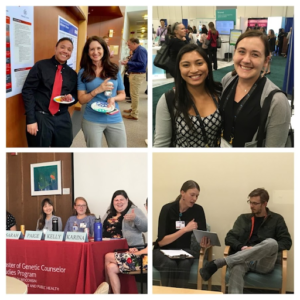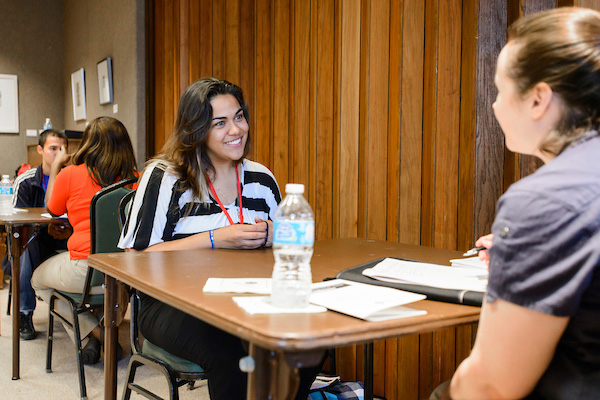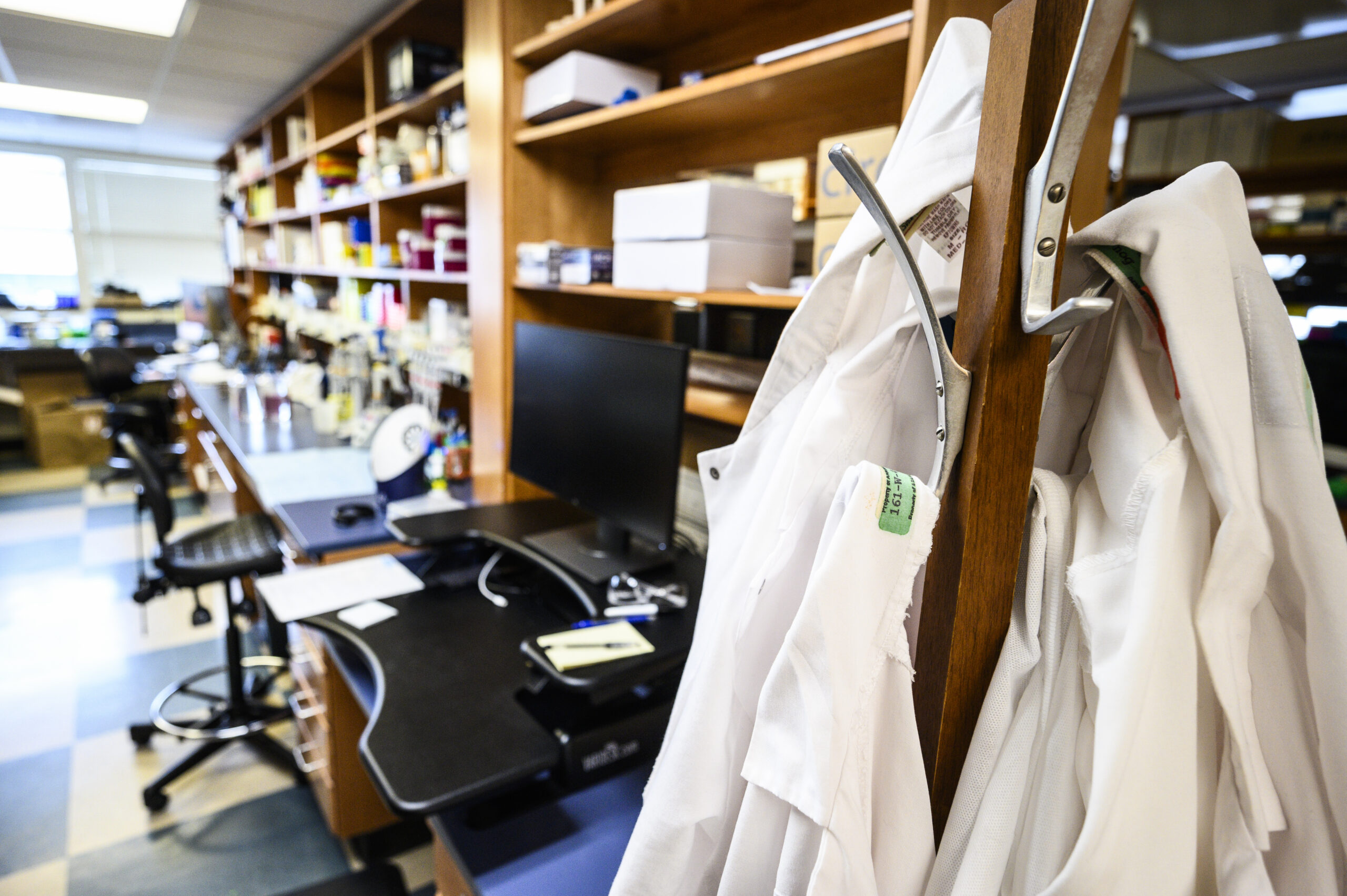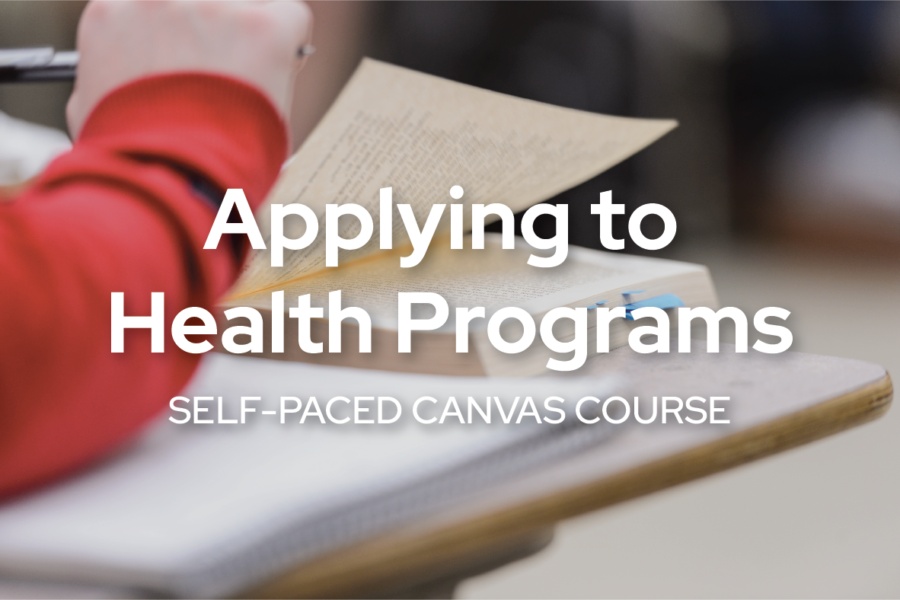About Genetic Counseling
Genetic Counselors work with members of a healthcare team to help patients and families with or at risk for genetic disorders. They provide education about these disorders, analyze inheritance patterns and risk of recurrence, facilitate genetic testing and interpretation, and provide care coordination for further medical needs. They also support the patient and their family through counseling, serving as patient advocates, and identifying community, state, and national support services and resources. Learn more about genetic counselors on the National Society of Genetic Counselors website.
Genetic Counselors work in a variety of healthcare settings including medical centers, physician offices, health maintenance organizations, clinical research, advocacy organizations, governmental agencies, public health departments and biotechnology companies.
Those in clinical practice provide education and counseling in areas such as reproductive genetics, infertility and preimplantation genetic diagnosis, pediatric genetics, newborn screening follow-up, cancer genetics, neurogenetics, and cardiovascular genetics.
Certified Genetic Counselor (CGC)
To become a certified genetic counselor, students must obtain a Master’s degree in Genetic Counseling from an accredited program and then pass the national certification exam offered by the American Board of Genetic Counseling (ABGC).
For the most up-to-date salary information, visit the U.S. Bureau of Labor Statistics website.
Note: In addition to the resources below, we encourage you to connect directly with staff at UW’s Master of Genetic Counselor Studies program. This page has information on pathways into Genetic Counseling and programs beyond UW-Madison. While this field is not among CPHA’s primary areas of advising expertise, we are here to support you in exploring the career, building helpful experiences, and navigating some aspects of professional program applications. Talk with us if you have questions!
Explore Your Interest in Genetic Counseling
Shadowing & Informational Interviewing
An excellent way to explore your interest in Genetic Counseling is by talking to a Genetic Counselor directly. The National Society of Genetic Counselors (NSGC) lists genetic counselors that are open to student interaction. Do not limit yourself by geography; try to interview genetic counselors in different specialties.
Volunteering
Genetic Counselor Programs look for applicants who demonstrate a sustained commitment to serving others. Learn more about opportunities to volunteer in areas related to advocacy, mental health or counseling.
Jobs
After volunteering and exploring, working in research or a healthcare setting is a great way to learn about practical aspects of the field.
Finding a Program
Programs accredited through the Accreditation Council for Genetic Counseling (ACGC) including UW-Madison’s 21-month long Master of Genetic Counselor Studies program.
Preparing for a Genetic Counseling Program
Requirements vary from school to school, so it’s always necessary to consult program websites. Graduate programs may require the completion of a Bachelor’s degree and some/all of the following courses:
Genetic Counseling Required Coursework
| Topic | Credits/Semesters | UW-Madison Courses |
|---|---|---|
| General Chemistry | 8-10 credits or 2 semesters | Choose one of the following sequences: Chemistry 103-104 Chemistry 109 |
| Organic Chemistry | 3-8 credits or 1-2 semesters | Choose one: Chem 341-342 Elementary Organic Chemistry Chem 343/345/344 Introductory and Intermediate Organic Chemistry with lab |
| Biology | 5-10 credits Usually labs are required. | Choose one of the following sequences: Zoology 101-102 + an additional bioscience course Options include: Genetics, Microbiology, Cell Biology, Immunology Note: you may need to do an additional bio-science course with lab Biology 151-152 Biocore 381-382 AND 383-384 satisfies Intro to Bio requirements Biocore 485-486 Organismal Biology lecture/lab (Satisfies I/A bio) *Biocore: Students must apply to enroll in Biocore. For more information, visit the Biocore Website |
| Biochemistry | 3 credits | Biochem 501 |
| Genetics | 3 credits | Genetics 466 or Genetics 467/468 |
| Statistics | 3 credits | Stats 301 Stats 371 Psych 210 A statistics course in your major |
| Psychology | 3 credits | Psych 202 |
Application Process
Many Genetic Counseling programs use a match process to connect applicants with programs. In this case, students register for The Match, then apply to programs, interview if they are invited to do so, and then create a secret ranking of programs. Each school also ranks applicants and an algorithm matches students to programs. If you are interested in applying to Genetic Counseling programs, check to see if they are using The Match!
Programs may also require applications to gain experience related to patient advocacy or counseling, and it is helpful to have exposure to work in research or a healthcare setting, but the GRE is not a common requirement.
Read more about how to apply for the Match Fee Waiver or reach out to programs that do not participate in the Match to see if they have fee waivers available.
Enroll in Applying to Health Programs
CPHA runs a Canvas course called Applying to Health Programs, a non-credit course designed to help you with the process of applying to programs like CGC programs.
Additional Resources
GOLDEN seeks to inform Black students about the career of genetic counseling and engage and support prospective Black genetic counselors. Follow @goldenDNA2 on Instagram.
The Master Genetic Counselor Series is a national resource created at UW-Madison, featuring simulated genetic counseling sessions within cardiovascular, cancer and prenatal specialties. There are associated resources to help prospective applicants “think like a GC”.
Exciting advances in genetic counseling and current events related to the field are discussed in The DNA Exchange, Maps & Genes, and in the My Gene Counsel toolkit.
Katie Lee CGC is a genetic counselor focused on providing proactive applicants with insight about the profession and the process to apply.
The Beagle Has Landed and DNA Today cover topics of interest to genetic counselors.




